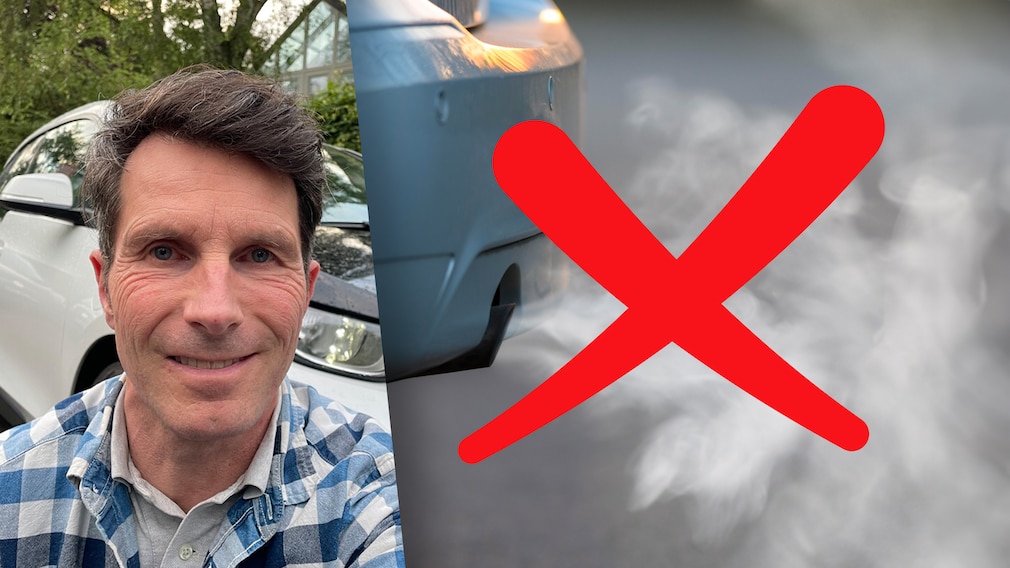Why I wouldn’t buy a new combustion engine again
At the Car purchase always decide together with your head and your gut. A lot of money is also involved. An ideal mix for big feelings that are not always clear. At the moment, there is immense reluctance to buy in Germany, that is the general tone. Nevertheless, car buyers are still faced with the choice of drive type: Petrol? Diesel? Hybrid, plug-in hybrid or electric?
For me, the matter is clear: I would not buy a new combustion engine today. And I will add one more thing: A hybrid is even less of an option (here the Advantages and disadvantages). I’m really sticking my neck out here, because I belong to a minority of currently 12.6 percent of car buyers in Germany. The majority, what am I saying, the vast majority sign a purchase contract for a car with a combustion engine.
I can understand anyone who buys a combustion engine, because I share the fascination with diesel and petrol engines (I have both in my private life). And the current cars are getting better and better. I like the mobility I am used to: the tank is full in no time, the smell when refueling is familiar, driving gives a feeling of happiness that is hard to explain and that comes from the interplay of revs, accelerator, speed and harmonious movement in almost every car. You can see: cars are close to my heart. If anyone thinks I am a heartless electric car freak who does not tolerate any other type of drive, don’t aim at me. Quite the opposite, I love combustion engines!
Environmental protection, ease of maintenance and energy costs
And yet, in my opinion, there are many arguments against buying a new diesel or petrol car. First and foremost, the environmental aspect, because as great as driving a combustion engine is, it is also harmful to the environment. Over millions of years, a treasure trove of fossil oil matured in the depths of the earth, only to be pumped through injection nozzles and burned on the road within a few decades. When you could drive electrically, with renewable energy.
Apart from environmental protection, the coming years are threatened by CO₂ price hammer. Assuming you still want to own your next car in 2030, you might be wondering what petrol or diesel will cost then? Answer: It’s damn hard to say, but one thing is certain: the risk of ever-increasing CO₂ prices is here to stay. At the moment it’s 45 euros per ton. Will that become 450 euros? Not entirely unlikely. On the other hand, electricity prices are likely to fall in the long term; my friends are already charging for 0.20 euros/kWh. The energy costs for 100 km with this? Four euros.

The energy costs for electricity are currently 4.84 euros for compact cars and 5.03 euros per 100 km for mid-range and luxury cars.
Image: Federal Ministry for Economic Affairs and Energy / BMWK
And the expected maintenance history for the combustion engine. In contrast, with the E: hardly any moving parts, no oil, no cooling water, no timing or V-belt, no exhaust. No injection system, no alternator. You already know all of this. But the vast majority of car buyers ignore these combustion-related factors, which in the Cost comparison of electric car or combustion engine speak in favor of electricity-based driving.
Driving feel and torque speak for the electric car
From the mundane costs to the number 1 fun topic: Even the small car built until 2023 Renault Twizy already conveys electric driving pleasure, not to mention current vehicles. The way in which almost every electric car takes off when you boldly step on the accelerator pedal is something you simply have to experience. Anyone who wants the perfect driving culture like the BMW iX3, you won’t want to switch back. The car glides silently over the asphalt as if on rails. The silent performance of all electric cars is simply perfect.
How could the resale value develop?
This is perhaps the most difficult part of the purchase decision, and one that you probably don’t immediately think about when you sign the purchase contract: Who will buy my car when I’m looking for a new one in a few years? And at what price? What about the residual values? They will only stay high as long as there are still buyers for diesel and petrol cars. Personally, that would be too risky for me.

The new cars of today will be the used cars of tomorrow. What about the residual value of combustion engines? That is difficult to say today.
Photo: Frank Hoermann/SVEN SIMON
What about future security?
My prediction: If the manufacturers’ fleet emissions targets increase, if society moves towards the end of CO₂, then the residual values of combustion engines will collapse. Will combustion engines then look old? There is much to suggest that this will happen. Even the automotive industry association VDA is calling for a End of petrol and diesel for the year 2045. What about the electric car? If it fits your driving profile: A future-proof investment, I think.
